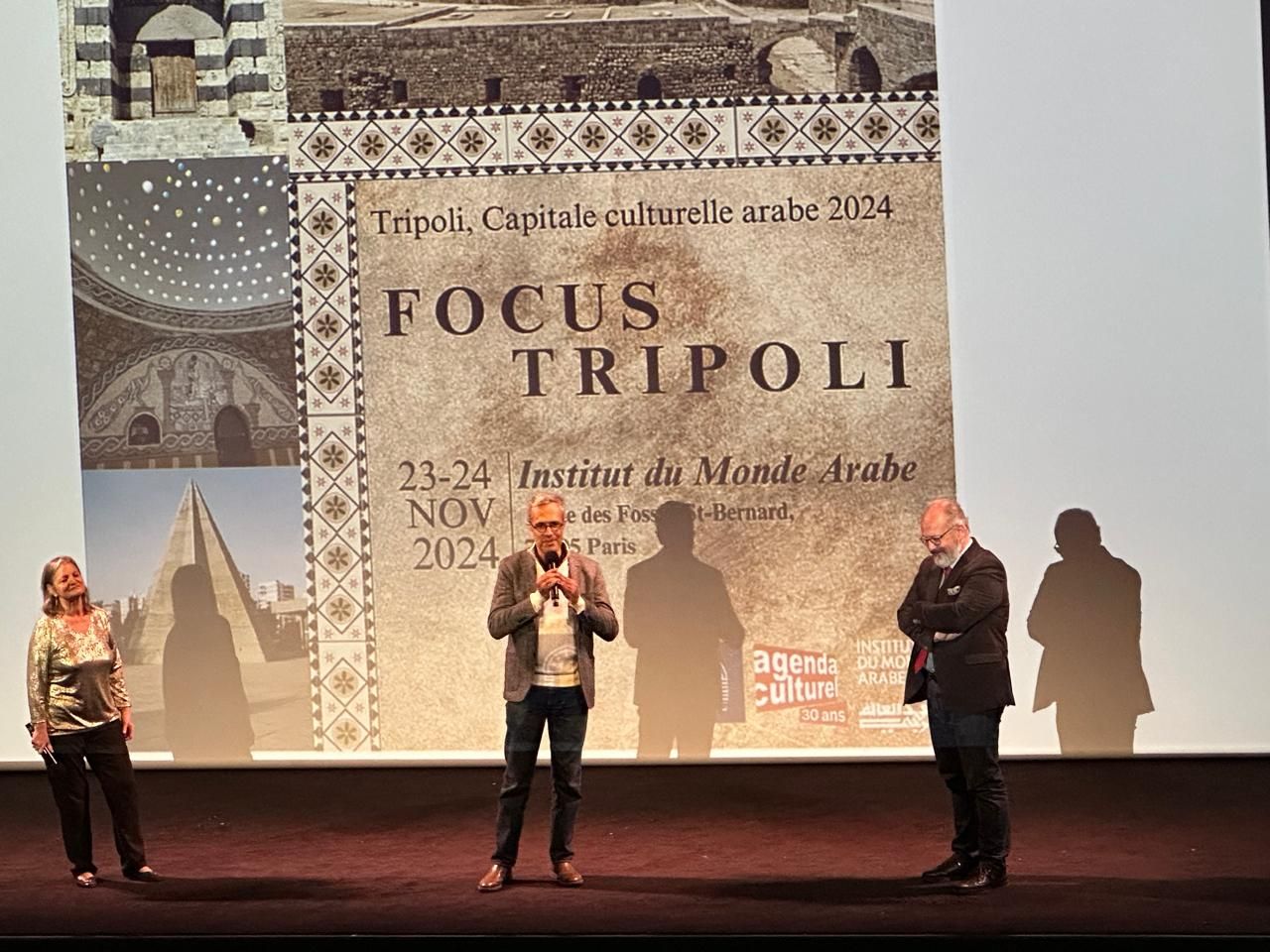
As part of Focus Tripoli: Tripoli, Arab Cultural Capital 2024, the IMA in Paris hosted the screening of Cilama by Hady Zaccak on Saturday, November 23. This screening unveiled the golden age of cinema in Tripoli, blending memories of love, culture, and war.
The screening of Cilama, directed by Hady Zaccak in 2024, at the IMA in Paris, as part of Focus Tripoli: Tripoli, Arab Cultural Capital 2024, offered an evocative glimpse into Tripoli’s cinematic past. The documentary, both poetic and deeply reflective, serves as an album that chronicles the collective memory of cinema at the heart of this historic city.
Through an immersive exploration of photographs and archival footage, viewers join the filmmaker on an intimate journey through Tripoli’s once-vibrant cinemas. Walking from theater to theater, he peels back layers of dust and illuminates cobwebbed remains with his camera, revealing a glorious past brought to life through the stories of the city’s inhabitants. As Tripoli stands recently designated as the Arab Cultural Capital, its forgotten cinemas are revived, even as they now sit abandoned, silent echoes of dreams that once filled their halls.
Cinema as a Reflection of Turbulent Times
Armed with the tools of a documentarian, Hady Zaccak searches for evidence, fragments of stories, and glimpses of an era when cinemas were temples of culture and wonder. However, the film also confronts the scars of war, recounting how these once-enchanting spaces were transformed into shelters for fighters and battlefields scarred by violence.
A Quest Between Reality and Dream
"Prisoner of cinema in a real-world struggle," Hady Zaccak describes his mission as a search for the "temples and rites" of this magical era. His visuals transport the audience to an authentic world, filled with the laughter of children in Tripoli’s streets, the vibrant posters of films, and the carefree memories of youth. This introspective journey, enhanced by an evocative soundtrack, immerses viewers in the duality of a city that is both radiant and tragic.
Traces of a Collective Memory
"Standing amidst the ruins of my youth," says Zaccak, whose voice guides the audience as he asks questions. Like Rousseau’s solitary wanderer, he strolls through alleys, collecting fragments of truth and history, which he generously shares on the big screen. His photographs seamlessly blend into the film’s imagery, reconstructing a past shaped by both dreams and harsh realities. This cinematic odyssey transforms viewers into participants, drawing them into the stories of cinema halls that were built, destroyed, and ultimately abandoned.
What Will Remain of Tripoli’s Cinemas?
A hundred years from now, what will remain of Tripoli’s cinematic heritage? Cilama offers an answer: a fragile but invaluable memory, preserved through archival images and heartfelt testimonies from cinephiles and locals. Like the elusive Hakawati he seeks, Hady Zaccak does not merely document physical spaces; he explores their essence, uncovering narratives where love stories intertwine with the traumas of war. With dual narratives—one soft and nostalgic, the other raw and fragmented—cinema loses its enchanting allure and becomes a stark reflection of a brutal reality, mirroring a nation’s troubled history.
A Masterpiece of Fiction and History
The film weaves fiction with reality, reconstructing lost eras while grappling with the uncertainties of the present. Archival sequences intertwine with contemporary narratives, creating a kaleidoscopic portrait of Tripoli—a city rich in history yet marked by pain. Hady Zaccak delves into the relationship between abandoned spaces and humanity’s eternal search for transcendence, illustrating how cinemas, even in their decline, remain spaces for escape and catharsis. Fighters, drawn to these strange and unfamiliar halls, seek a transcendent dimension or an outlet to release their emotions in their own way.
An Ending in Search of New Beginnings
Hady Zaccak keeps on revisiting this dusty past, which he considers a fertile ground for storytelling. "Because I am in search of beginnings," he confesses on screen, breathing life back into worn reels and forgotten tales. Cilama is a deeply human work—a vibrant homage to the culture and history of Tripoli and a poignant reflection on the fragility of memory in the face of time.




Comments